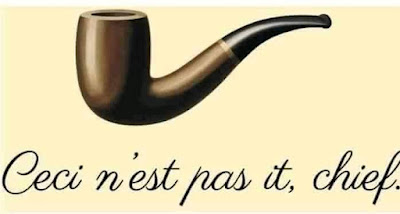Podcasts, Poetry, and Post-post-post Modern Memoir (and Wild Turkeys and Bathroom Demo)
Time off in Virginia meant time off the blog, and some time off from writing, too. The car rides down and up the East Coast were long, but Miss New Teen, The Boy, and I listened to the S-Town podcast during the drive. It's just as good as people claim -- and probably just as ethically murky, too, but more like real journalism than anything I've read or watched or listened to in a decade.
It was full of profanity but nothing my kids haven't heard spill out of their sweet, innocent mother's mouth before (*eyeroll*), so after I gave them the "remember, don't repeat these words" lecture (and they inwardly rolled their eyes at me), we listened and they asked questions and learned more about the world's ugliness but also about its beauty -- specifically, the beauty we find in love (McLemore's for Tyler Goodson, for example) and intelligence and curiosity (McLemore's -- his was a mad, brilliant mind.) We all learned more than we'd ever thought we'd learn about horology, too, and laughed together at McLemore's witty, biting commentary about the world (his own, and the world beyond S-Town).
 |
| A. had to show me how to remove the tile, but I caught on quickly. |
Maybe not coincidentally, I've also finished reading Scott McLanahan's Crapalachia, published by Two Dollar Radio, which is a brief, quirky, engaging "Biography of Place." His style -- at least in this book -- is full of a brevity in syntax and a starkness in description that recalls a West Virginian dialect and drawl, and it is literary and poetic in its plainness. I found the book really came together, though, in his epilogue, which featured moments like this:
“So we have come to the end. Listen: your heart is beating. Isn’t that amazing? Your heart believes in you. I believe in your heart too.”
“God bless the myths of this world. God bless those who keep trying to make myths. It’s all we have.”
“I just realized that I never look at a painting and ask, ‘Is this painting fictional or non-fictional?’ It’s just a painting.”
“Stories can actually rearrange continents if they’re told long enough. It’s actually in the Bible. Matthew 15:6-7 states, 'if you only had the faith of mustard seeds and stories — we could move mountains and the locations of gas stations.'”
“The last line about passing the torch of life is stolen from Lucretius. He has been dead for years but he is still alive.”
That first quote echoes Vonnegut, and I think McLanahan's dry humor and matter-of-factness when talking about illness and poverty and death echoes him, too. I love the painting analogy as well, particularly when we talk about memoir writing and memory and lofty ideals about "truth". And the Bible quote just makes me laugh and laugh. Gas stations. Ahem.
Over the past two weeks I've also read Ada Limon's fourth poetry collection Bright Dead Things, published by Milkweed Editions, which was a finalist for the National Book Award. It's one of my new favorites. My copy is ridiculously dog-eared. I have this aversion to writing in my books -- I do annotate, but in a notebook, usually -- and so I fold down corners of poems I like especially. This method loses its effectiveness when the majority of the pages are folded down, as is what happened with this collection. It's a beautiful book, with vivid gorgeous images, musical moments, and a clarity of vision and voice that delivers quiet, moving insight into the way we live and love and grieve. I heart this book.
 |
| There was one more caught on the other side of the fence. Turkeys aren't bright. |
Next up: Carmen Maria Machado's Her Body and Other Parties, a short story collection I heard her read from at AWP this year. Also: More bathroom demolition and keeping my dog from messing with Mama Turkey and her Turkey-lings.


Comments